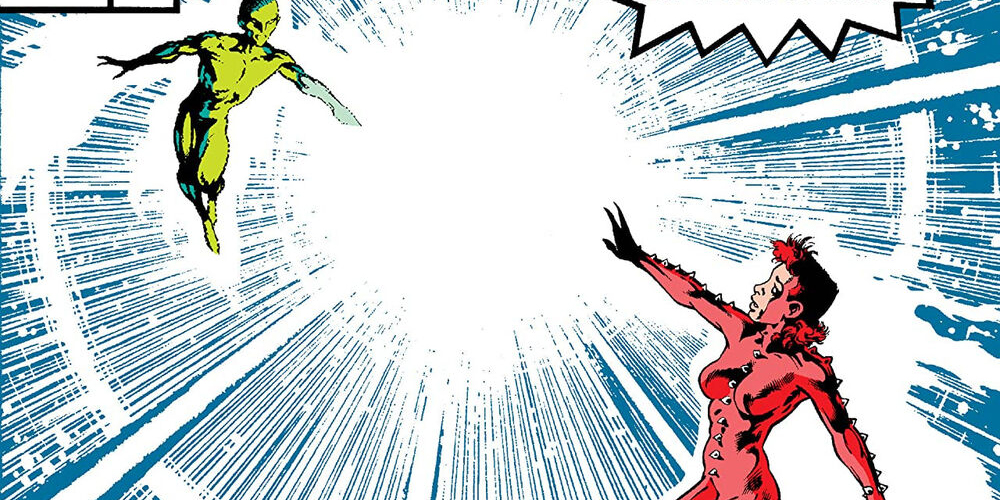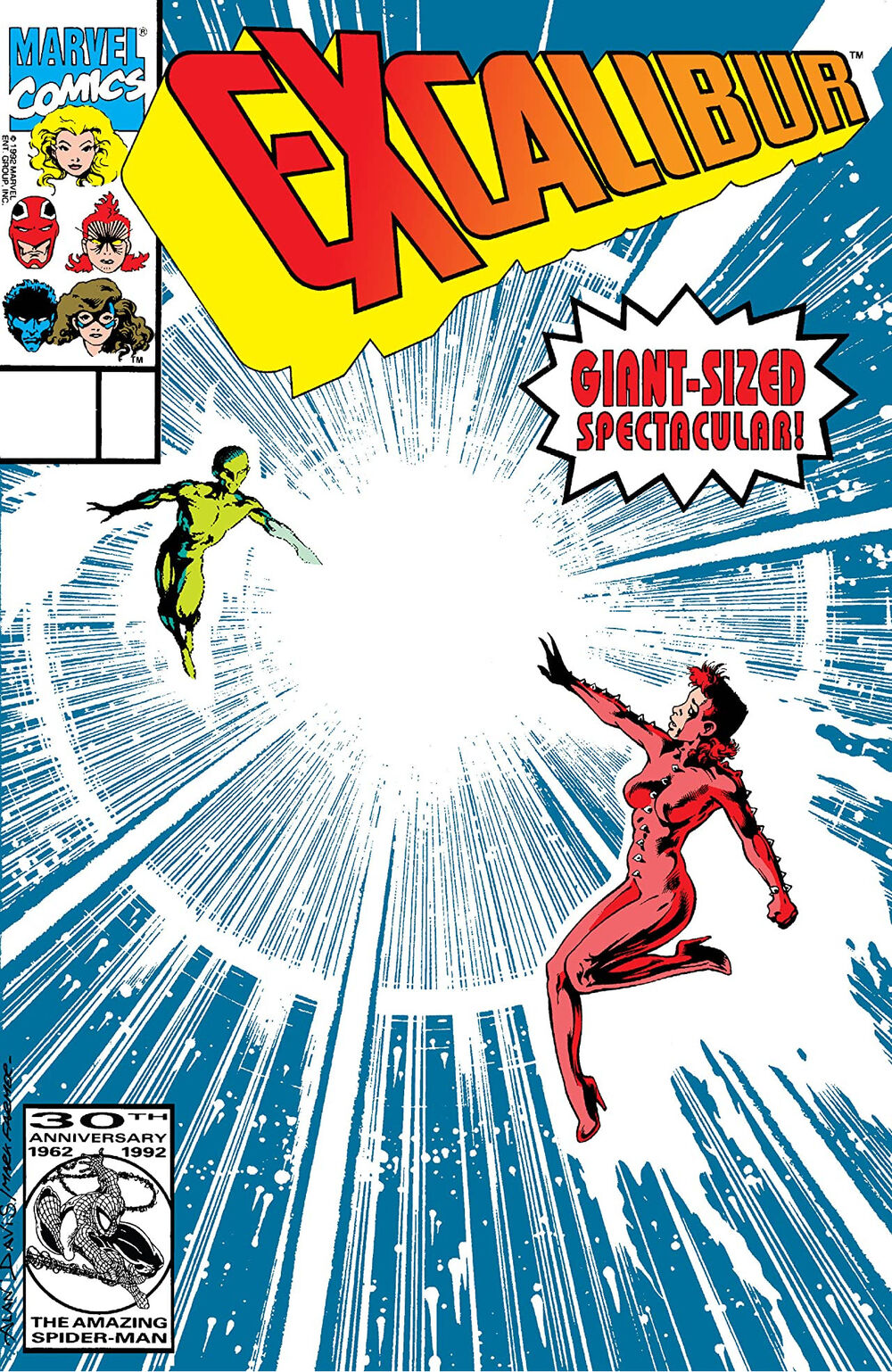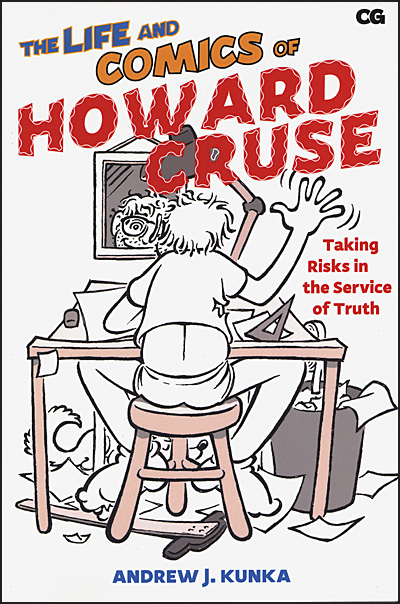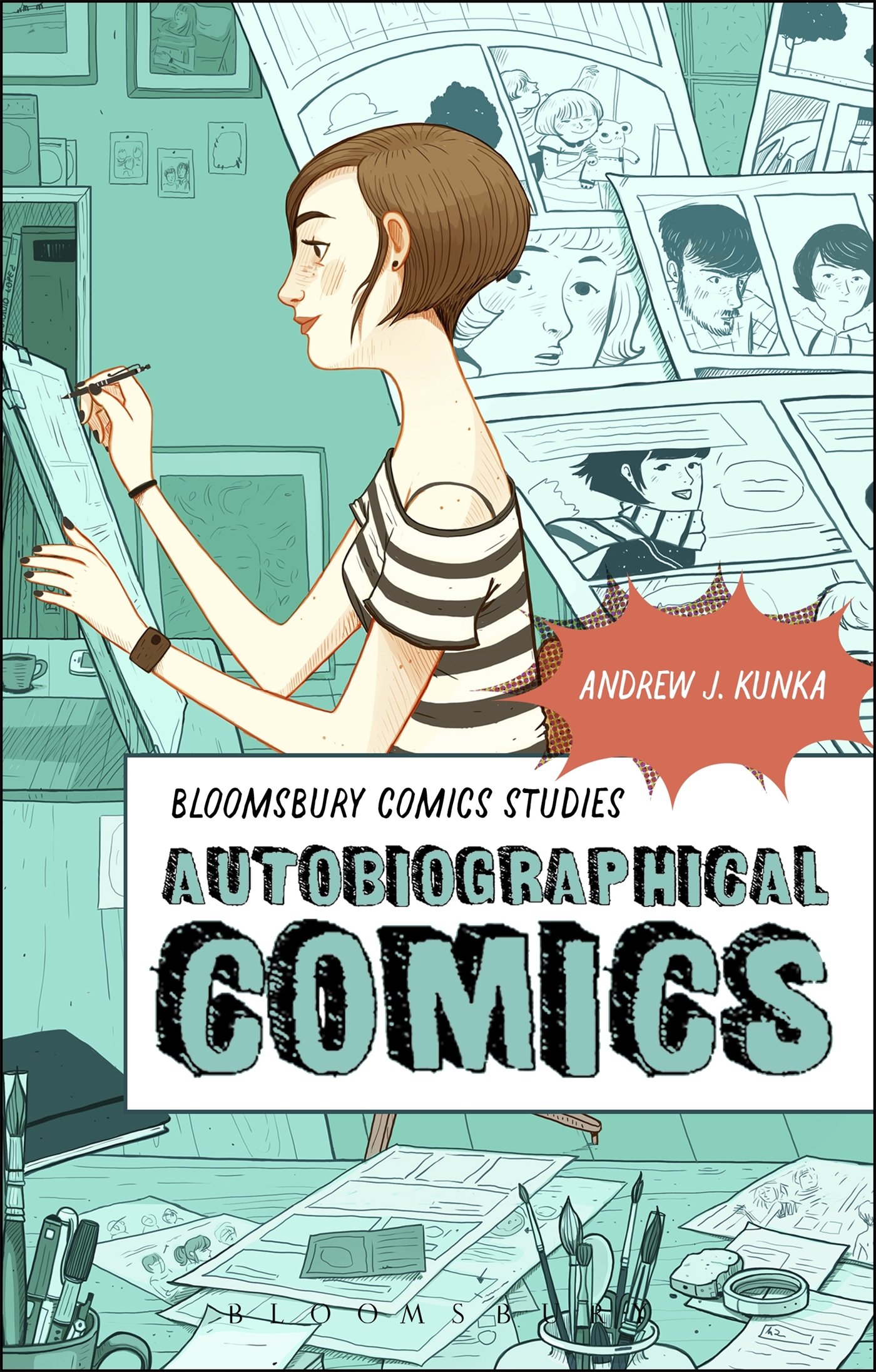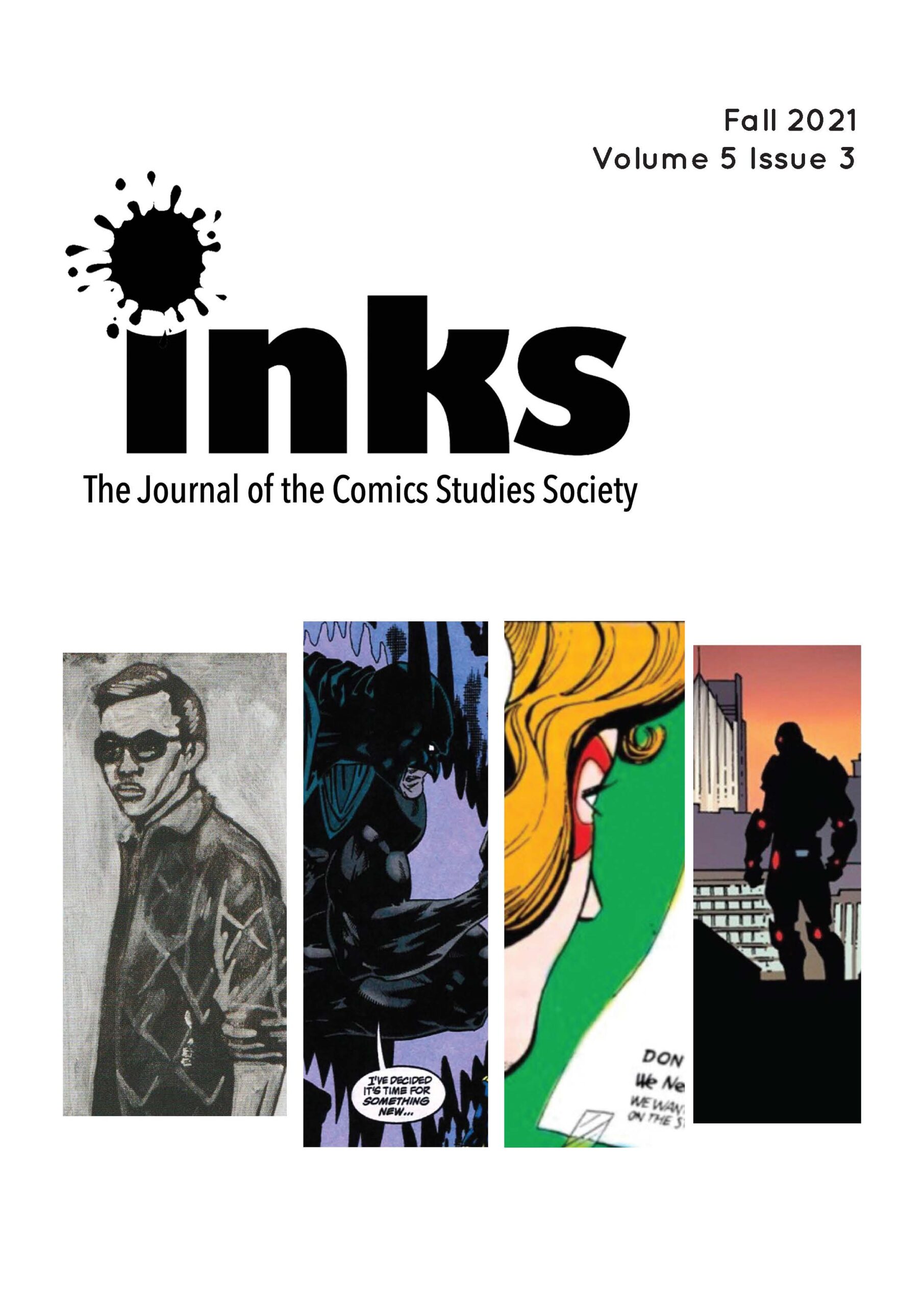Excalibur #50
“Winner Loses All”
Writer and pencils: Alan Davis
Colours: Joe Rosas
Inks: Michael Heisler
Editor: Terry Kavanagh
Original publication date: May 1992
Our guest, venerable comics scholar Dr. Andrew Kunka, says he wanted to join us for the mega-sized Excalibur #50, “Winner Loses All,” in part to hear us talk about a particular scene, in which saving the multiverse requires everyone going inside everyone. We hope we didn’t disappoint him (or you!) with our discussion of this supersexy climax—and its scholarly and narrative significance. We also discuss what makes a good anniversary issue and bask in the cosmic glow of Rachel’s very big (literally earth-shattering) Big Hero Moment.
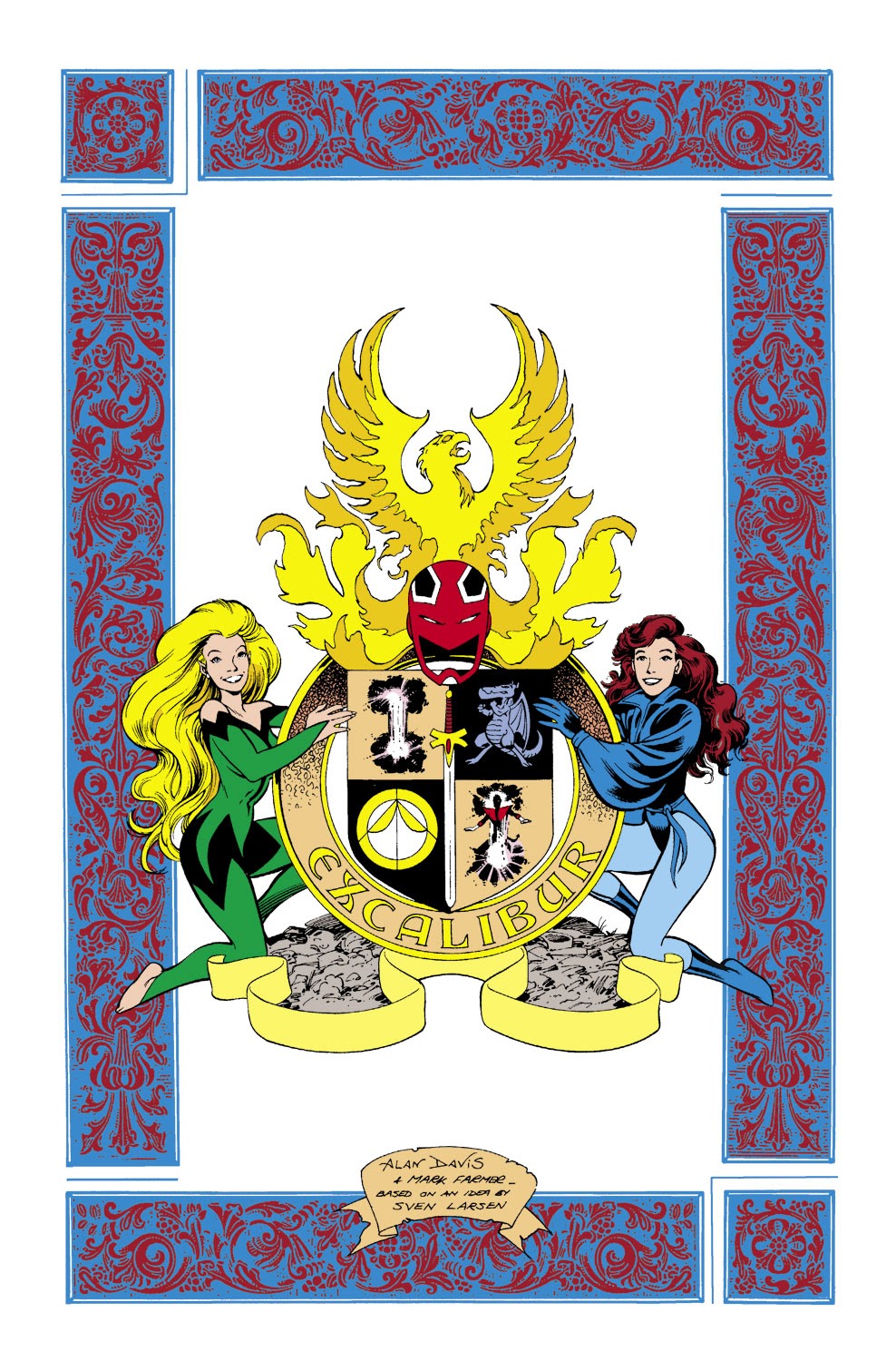
On anniversaries:
“This issue feels like it earns its anniversary issue status, through its consequence, and its action, and its excitement. Whether it’s ‘good’ or not almost doesn’t matter. It’s worth my $2.75.” -Andy
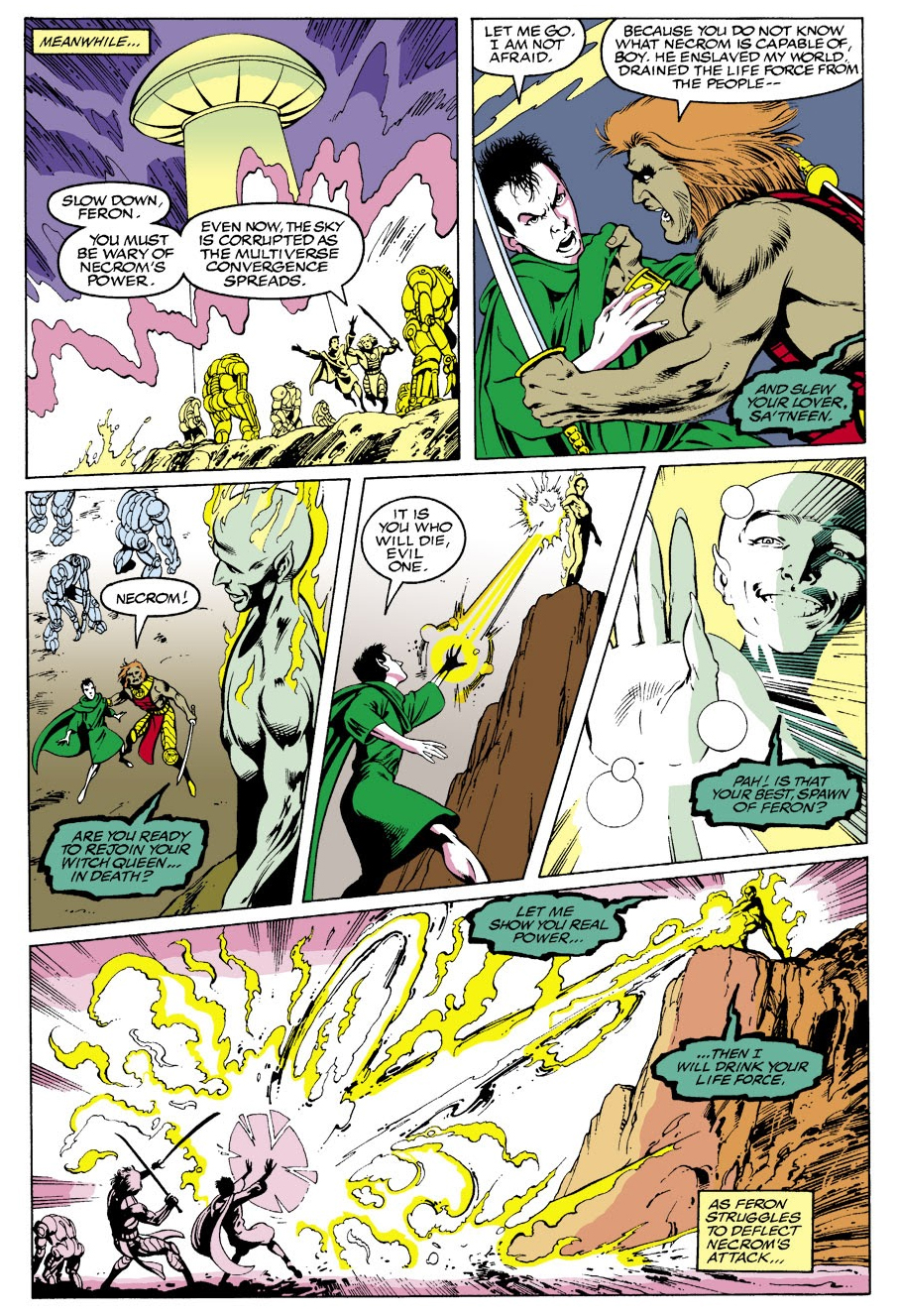
On spiritualism:
“This comic sets up three different versions of being the chosen one. Kylun’s pagan approach, Feron’s Christian one, and Rachel’s wicca-inspired heritage. It would be cool to see those approaches square off. But we don’t quite get there.” -Mav
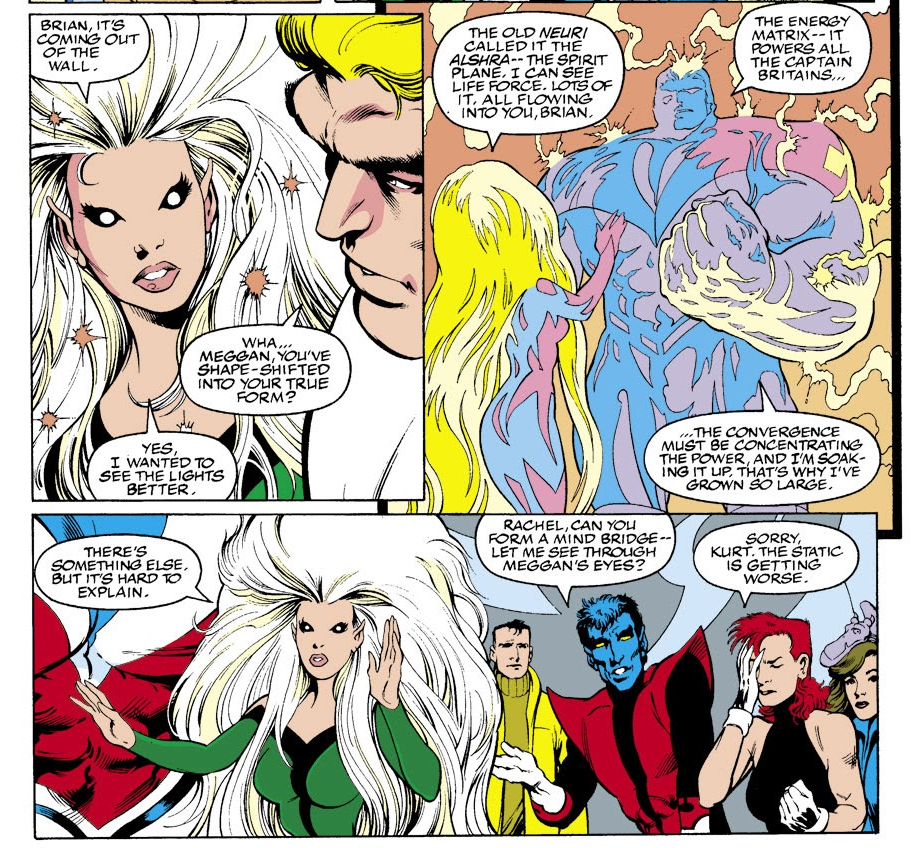
On sexual symbolism:
“Before this podcast, I would have gone with a food metaphor and called this Excalibur Turduken. Now, after listening to 50 episodes of you talk about this comic, I see it and say—that’s a five-way.” -Andy
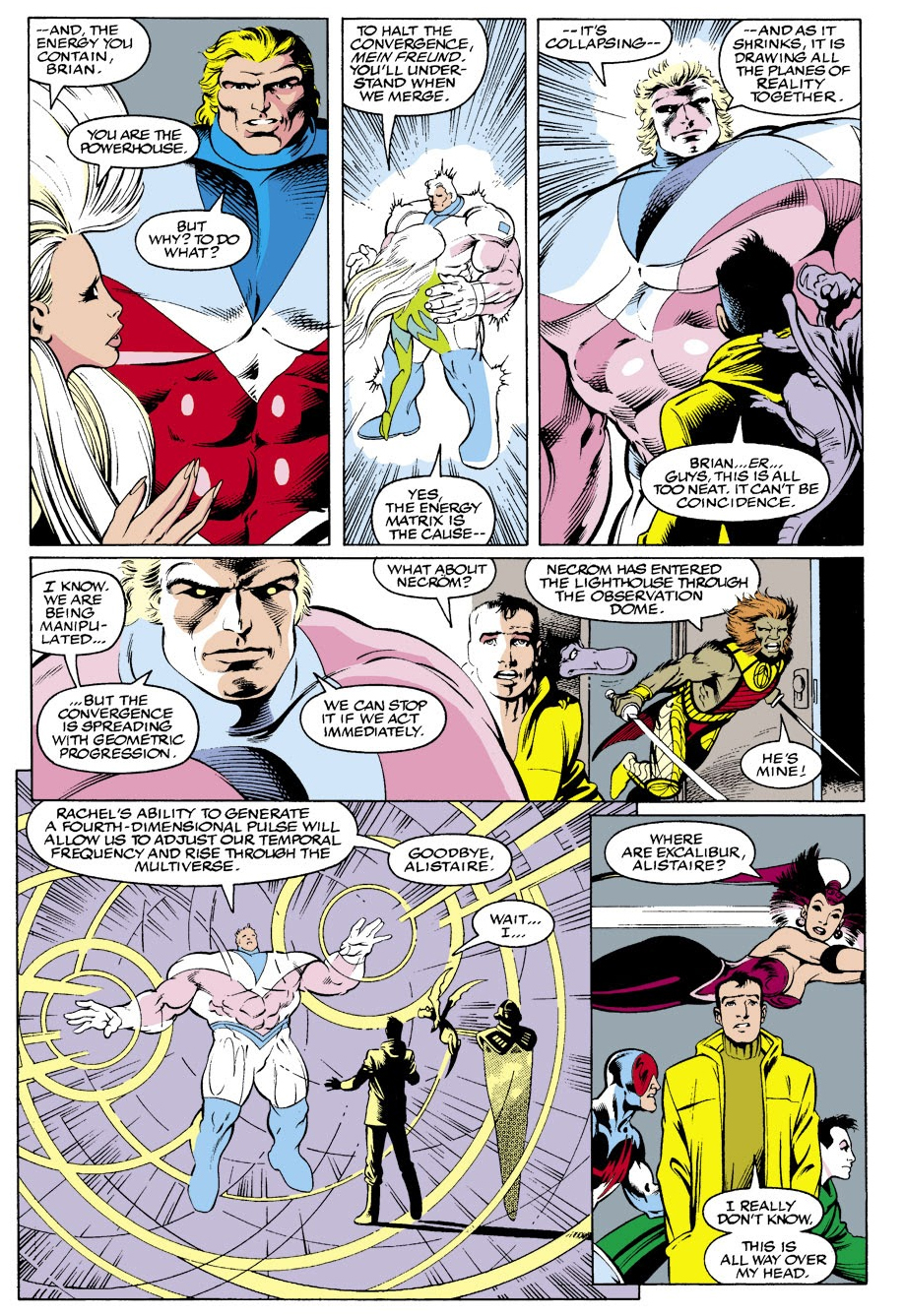
More symbolism:
“I think, in light of the love triangle, you have to particularly spotlight the visual depiction of Meggan reaching out to Brian in Kurt’s voice.” -Andrew
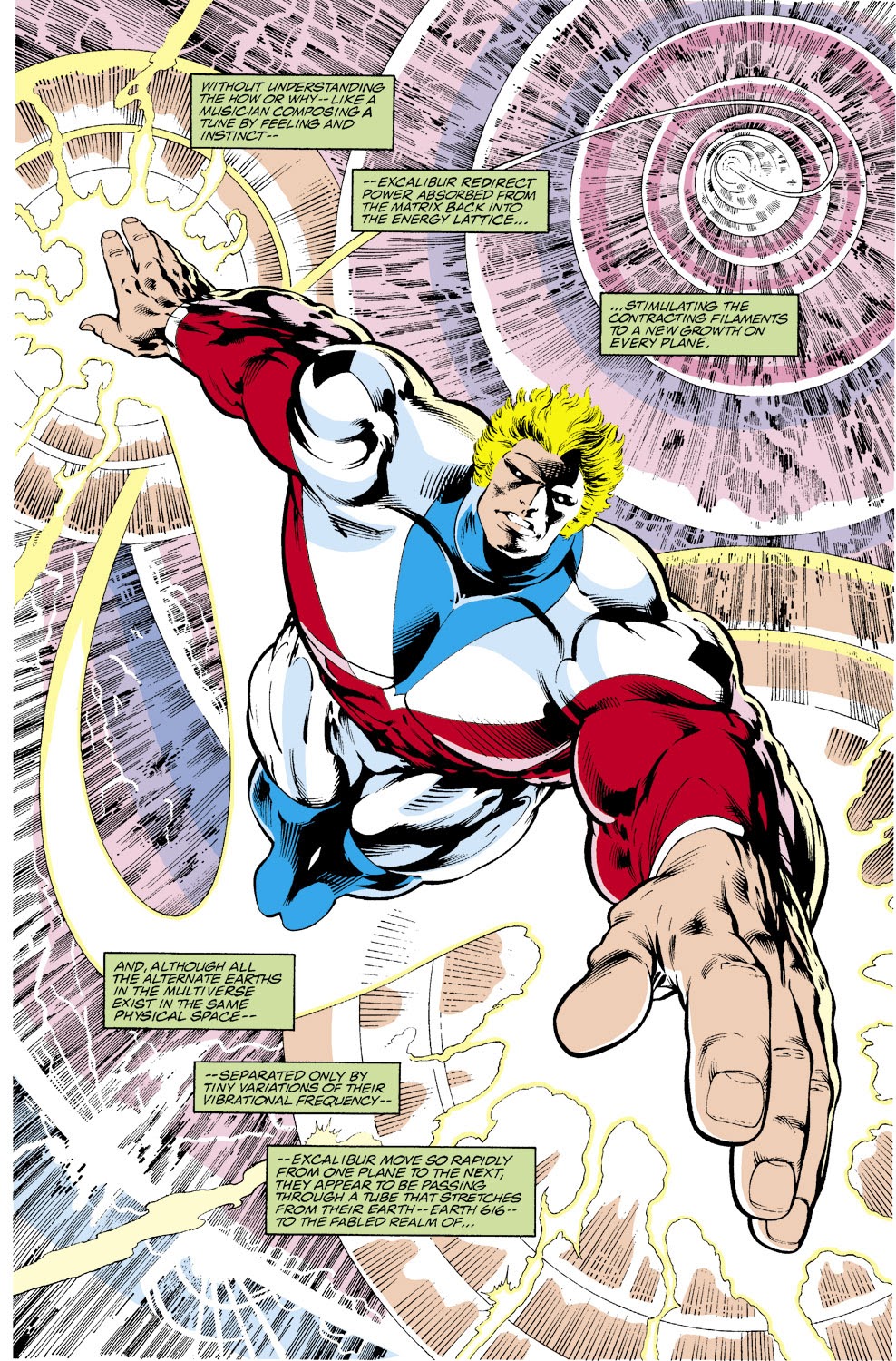
On utopian supersex:
“It’s sexy but it’s not about putting a penis into a vagina. It’s queerer than that. It’s about the queer ways bodies can relate to each other, which are metaphorized but also literalized by the presence of superpowers.” -Anna
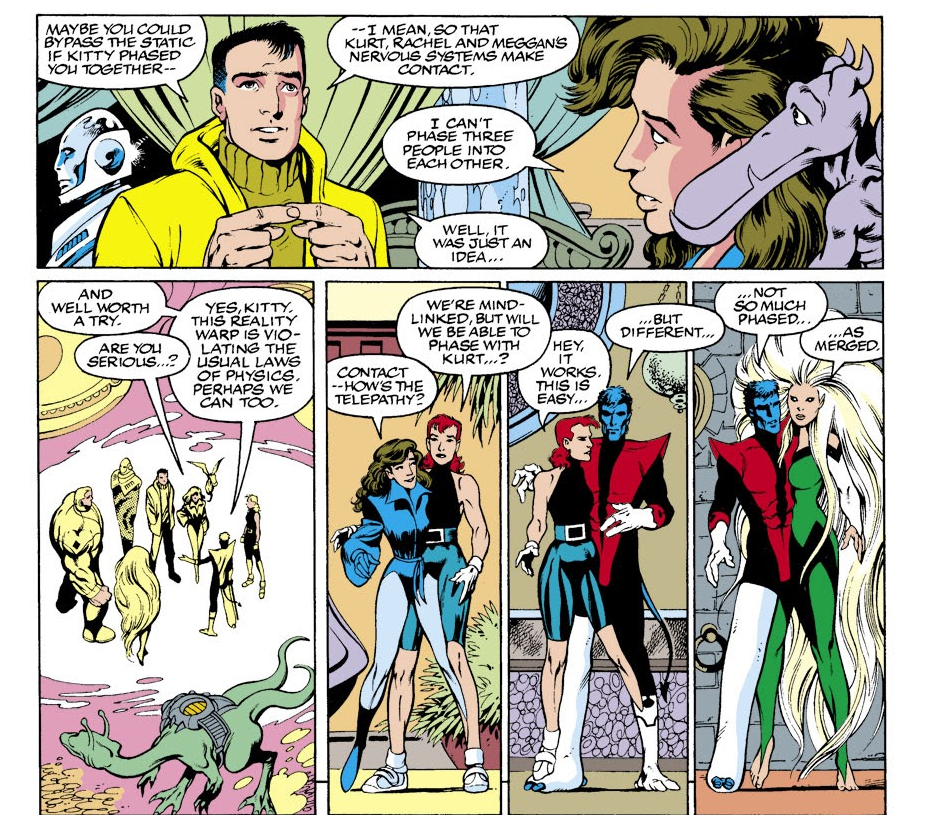
On undeniability:
“There’s usually a deniability with supersex. But this is different from me wondering if Reed Richards uses super-stretching in the bedroom off-panel. Their genitals are aligning here in order to transform them into a singular being.” -Mav
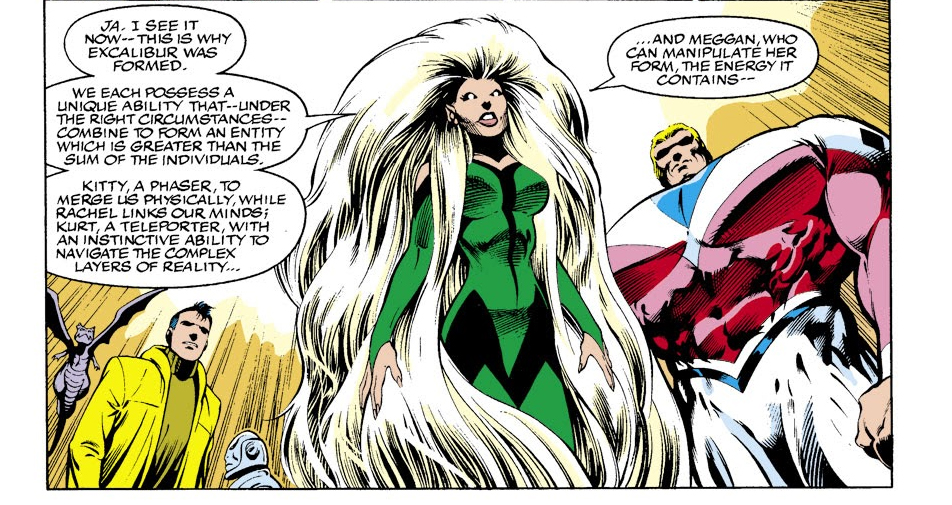
On callbacks:
“This scene is also riffing on Dark Phoenix, which has a very established symbolic vocabulary, in which merging together is sex, and sex is merging together.” -Andrew
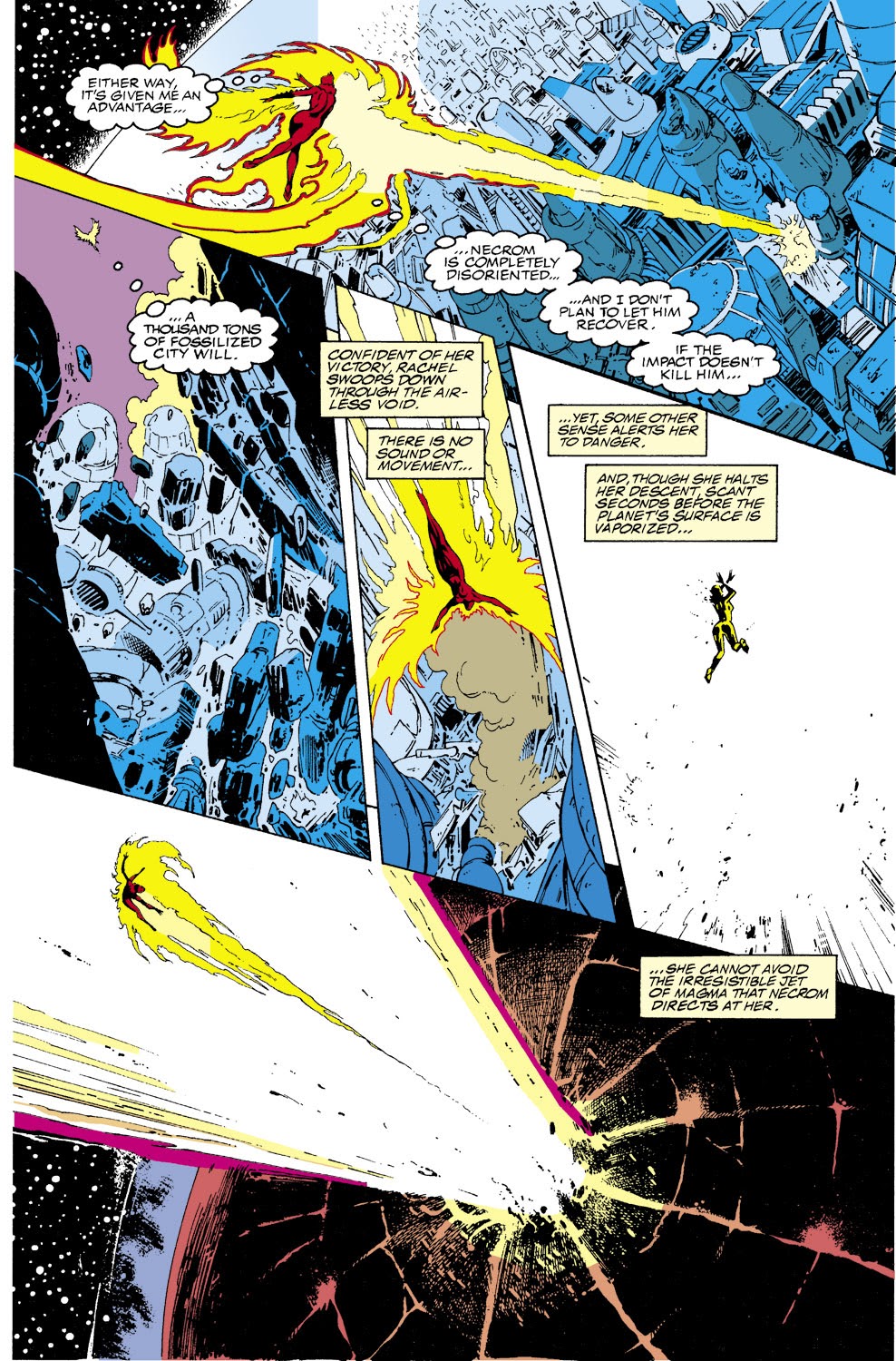
On Rachel letting loose:
“Rachel has been suppressing the Phoenix, for plot reasons and for emotional reasons. Seeing her get to cut loose, after all that anticipation—that’s satisfying.” -Andrew
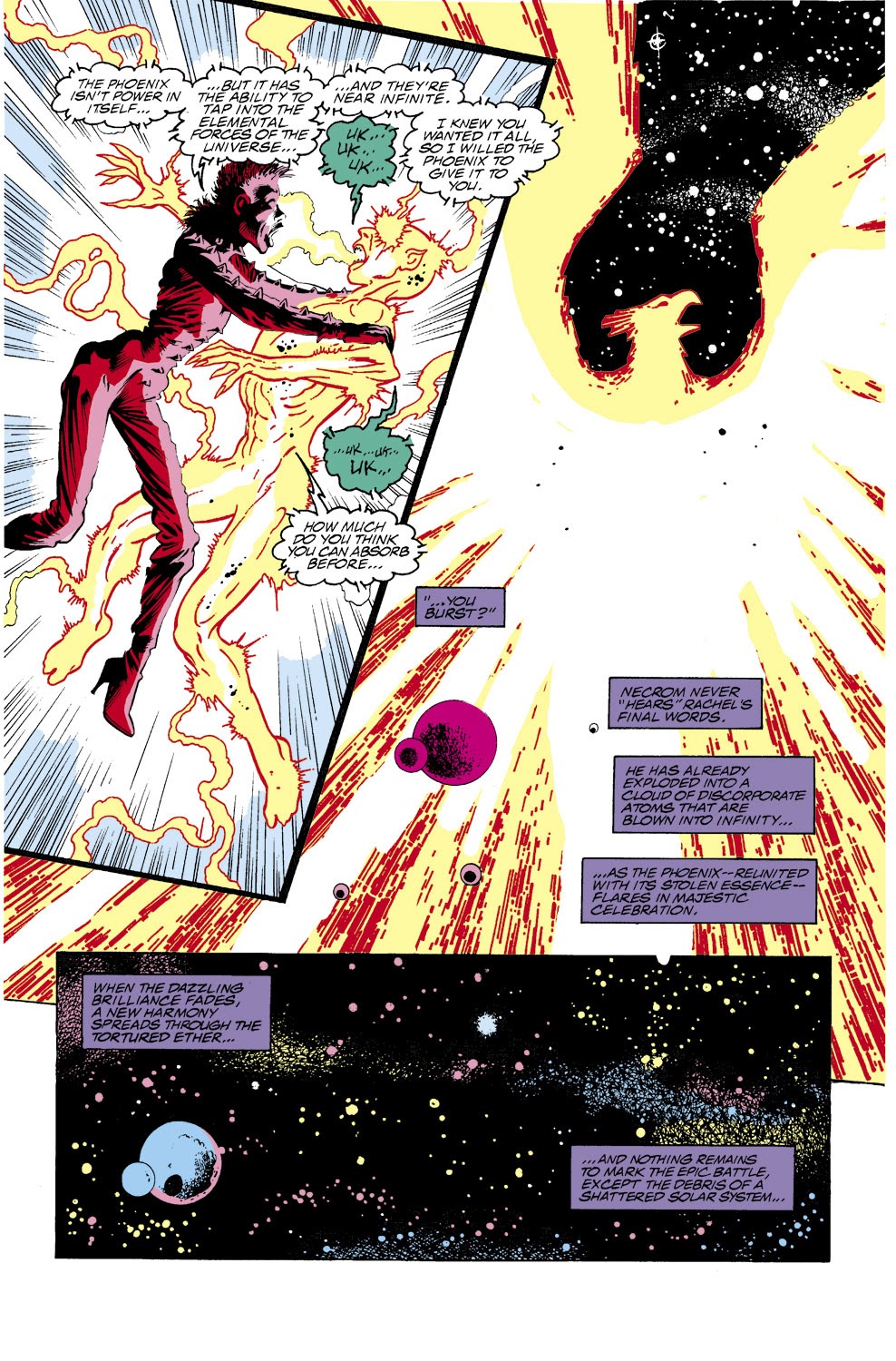
On catharsis:
“It’s very cathartic that Rachel defeats Necrom with the very thing she’s been fearing throughout her arc—being overwhelmed by the power of the Phoenix. And in defeating Necrom she in theory ascends, emerging from the battle in the original Phoenix costume.” -Andrew
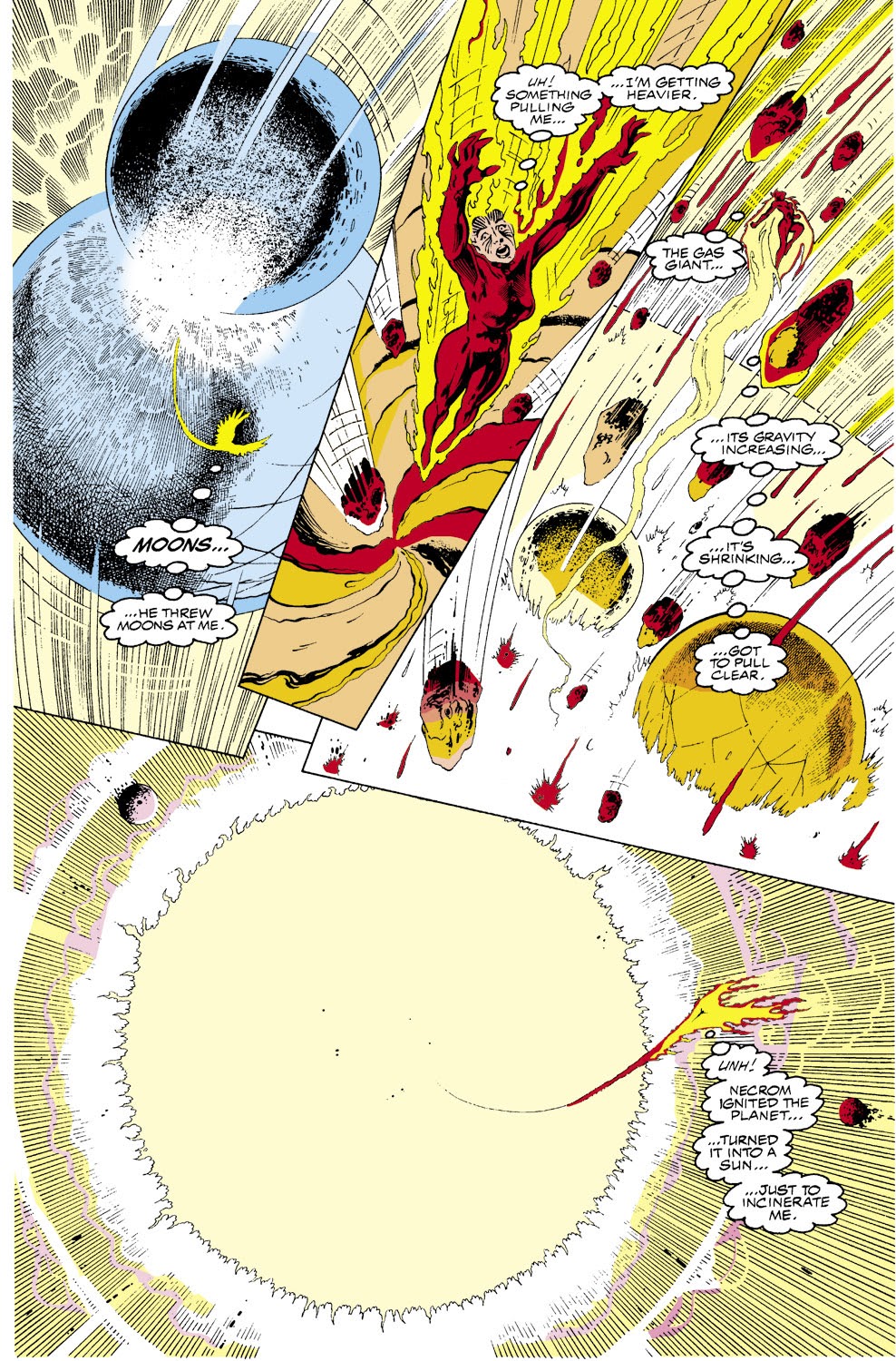
On formal explosions:
“When Rachel goes cosmic, the panels start growing and overlapping, to the point where, once she really goes super-Phoenix, the borders of the panels disappear altogether, giving the impression that the fight literally can’t be contained.” -Mav
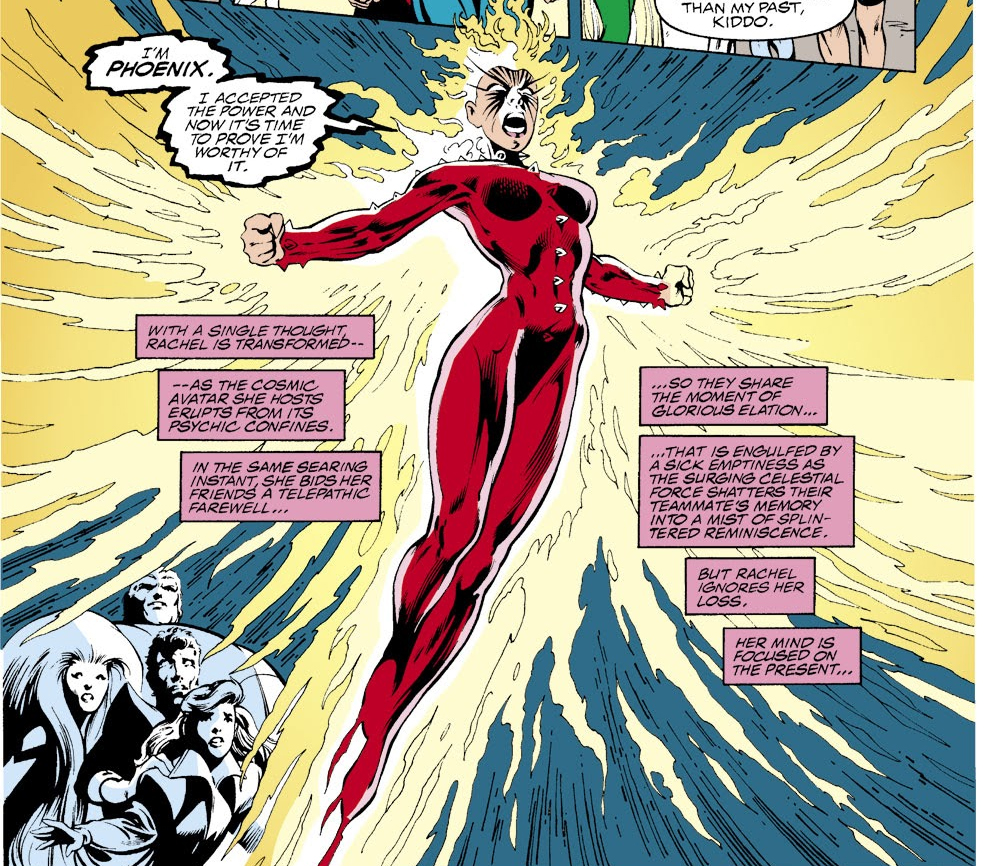
On powerful sexiness:
“I’ve talked on the pod before about how I often have trouble identifying with female superheroes, whose hypersexualization can take me out of the story. But for me this is an image where the sexiness isn’t taking away from the power—the sexiness is enhancing the power.” -Anna
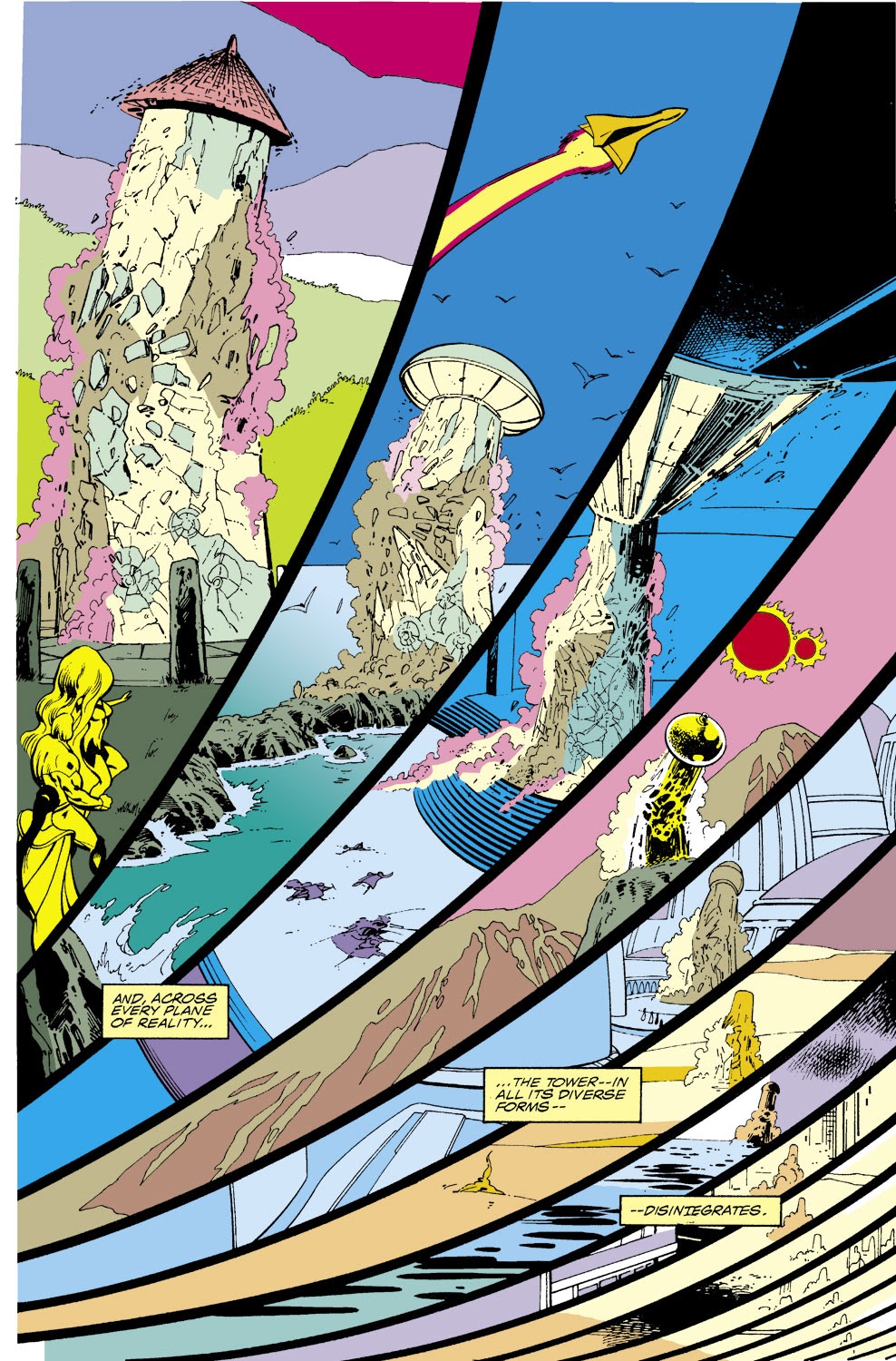
On toppling the patriarchy:
“From a feminist perspective, Roma, the lied to, manipulated daughter of Merlin, issuing a telepathic command that lets Meggan use Brian’s powers to topple every tower in the multiverse, halting Merlin’s power grab—from a feminist perspective, I love this. But I am worried about their stuff.” -Anna
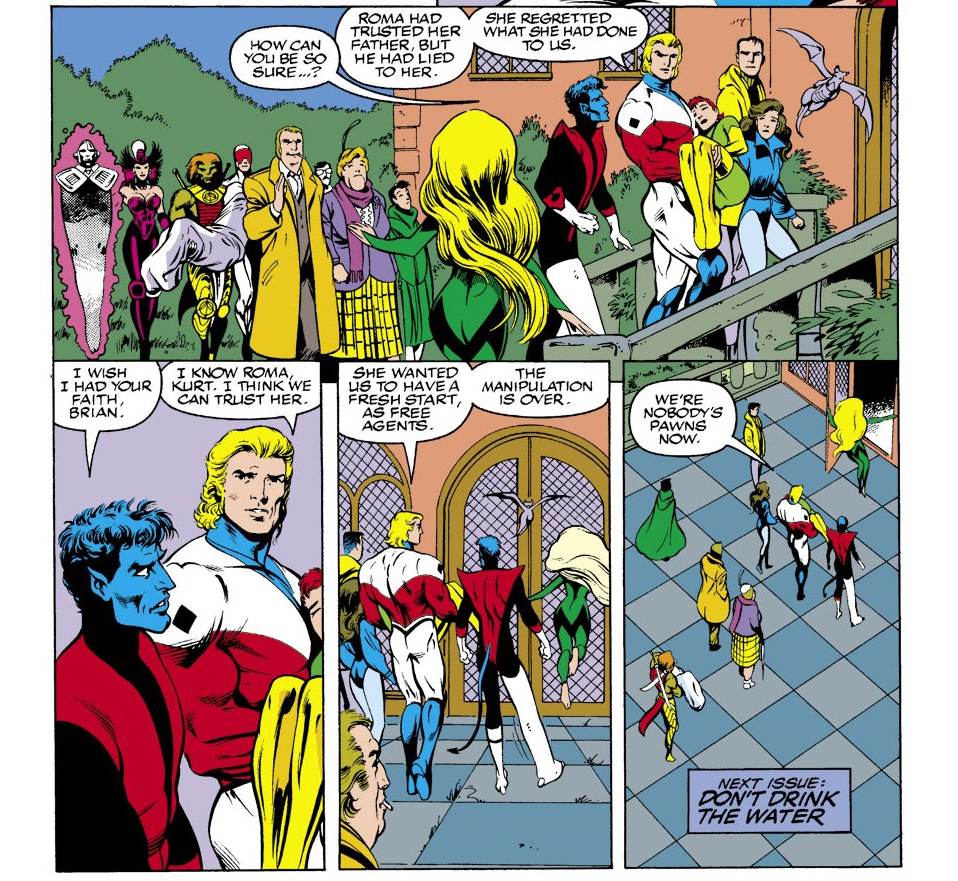
On faith:
“For Brian to have faith, and Kurt to lack faith, is an interesting character beat. Kurt’s a faithful character in many ways, not just religious. He’s faithful to Xavier’s dream, and in the idea of the world being just and fair. This is foreshadowing the toll of leadership.” -Anna

Want more Andy Kunka?
You can find him on Twitter (@doctork100)
And! Check out his brand new book from Rutgers University Press, The Life and Comics of Howard Cruse: Taking Risks in the Service of Truth, available wherever fine books are sold!
You can also check out his previous book, Autobiographical Comics, from Bloomsbury!
Also, if you’re in a scholarly field or just want a taste of the same, check out Inks, the journal of the Comics Studies Society, where Andy serves as book editor.
And as usual:
You can find Anna on Twitter (@peppard_anna) and on her podcast with Andrew and Michael Hancock, Three Panel Contrast (@3PanelContrast).
You can find Andrew on Twitter (@ClaremontRun).
You can find Mav on Twitter (@chrismaverick) and on his podcast, VoxPopcast (@VoxPopcast).
Enjoy!
-GGW Team

